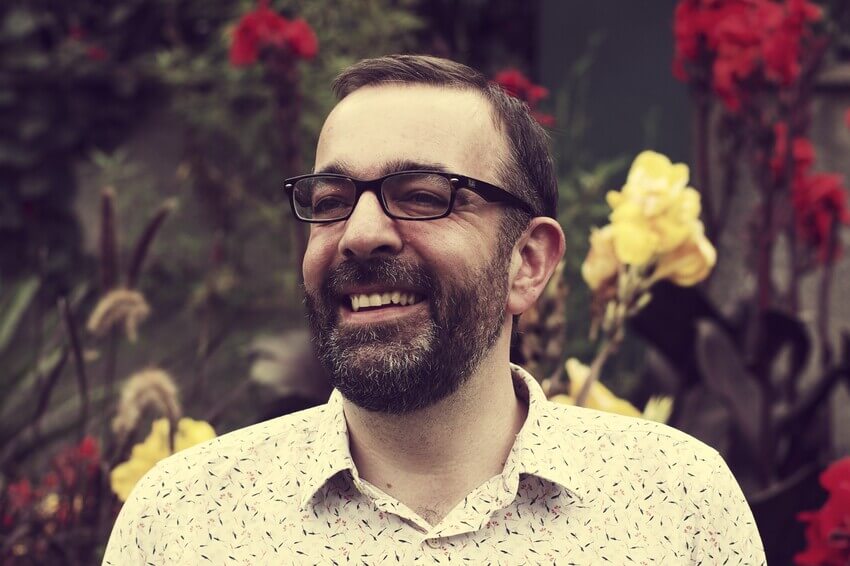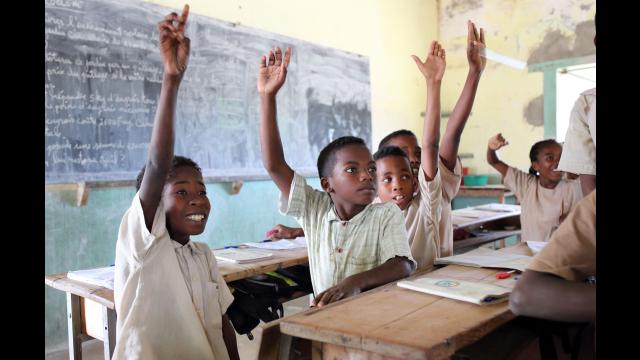My passion is theatre; as a child I worked professionally as an actor in London and I spent lots of my time in secondary school in plays. Although I was academic, drama is what stuck with me and gave me the confidence to become an entrepreneur.
I grew up in Guildford, just outside London, in a family of educators. My Dad was a head teacher and my Mum was a teacher (my wife is a teacher now as well) so perhaps I was always destined to end up spending my whole career working in education in one way or another. I had a fairly conventional education in two very good government schools in the UK. I had a great education experience and that has driven me to make sure others have the same opportunities as me.
Aside from education, my other big passion is theatre; as a child I worked professionally as an actor in London and I spent lots of my time in secondary school in plays. My school drama teacher was a big influence on my life - although I was academic, drama is what stuck with me and gave me the confidence to become an entrepreneur. Our current school in Kenya has a very strong drama programme. I now run a theatre company in the UK and still hope to find a way to bring together my two passions in East Africa.
 Before starting Scholé, I spent 15 years working in the UK education sector (although never as a teacher). Every organisation I worked for had a teaching and learning focus, from careers and enterprise to citizenship education. For 8 years I was the CEO of Changemakers, a UK NGO which developed young people’s leadership potential. Whilst there, I was involved in a large-scale child-centred programme in the UK that promoted student voice, drawing on a wide range of research and evidence from schools around the world. I also worked for Prime Ministers Gordon Brown and David Cameron to set up their flagship youth initiatives. Running an NGO was immensely enjoyable but always precarious – when I came to leave Changemakers I did not have the fear of giving up a stable, well-paid job to start from scratch.
Before starting Scholé, I spent 15 years working in the UK education sector (although never as a teacher). Every organisation I worked for had a teaching and learning focus, from careers and enterprise to citizenship education. For 8 years I was the CEO of Changemakers, a UK NGO which developed young people’s leadership potential. Whilst there, I was involved in a large-scale child-centred programme in the UK that promoted student voice, drawing on a wide range of research and evidence from schools around the world. I also worked for Prime Ministers Gordon Brown and David Cameron to set up their flagship youth initiatives. Running an NGO was immensely enjoyable but always precarious – when I came to leave Changemakers I did not have the fear of giving up a stable, well-paid job to start from scratch.
Towards the end of my time at Changemakers, I decided to set up a free school (a government funded independent school) focussed on pioneering a child-centred approach. The original idea for Scholé was that it would be UK based and this first free school would start a chain. However, quite randomly, a few weeks after I took the plunge and set up my own company, I was presented with an opportunity to open a group of schools for a mining company in Zambia. It sounded interesting, and a mentor of mine had told me to say yes to every opportunity in my newly self employed state, so I decided to go for it with my original business partner (we are still working together seven years later). This project showed us the huge opportunity on the low cost end of schools in Sub-Saharan Africa and we pivoted our original UK model to focus on this geography.
Throughout this journey, there have been amazing highs and amazing lows. The night before our first school opened in Uganda was one of the most memorable occasions for me. There is a tradition in Uganda that when a sports team wins a competition, they get a bull as a prize which is then barbequed and eaten together as a community. So the night before we took over the school, we held just such an open-air barbeque for the school. All the staff and students cooked on their own fire pit, everyone sang and it was a lovely atmosphere.
There have also been challenges. Some aspects of our approach are quite counter-cultural, and it hasn’t always been easy to bring together the best of local and international teaching and learning. However, we have now been in Uganda for 3 years and our model is embedded; the quality and style of education has been transformed.
One challenge we continue to face in our schools in Kenya is the attitude towards international approaches. Parents and staff are fiercely proud of the national curriculum, and they were worried that the ethos of the school would change under our management. However, for us it is not about imposing a model from outside, but rather supplementing the great teaching and learning the schools already have with international best practice and high intensive professional development. We also want to facilitate a genuine exchange of best practice. Last year, an outstanding primary school in London visited our schools and were so impressed with their child-led assemblies that they implemented a similar approach as soon as they returned home.
Our ultimate goal is for every child in Africa to have access to a quality education. We are particularly focussed on making education more child-centred and engaging. Education in many parts of the world is still didactic, unengaging and uninteresting. We want to make teaching and learning more exciting!
My advice for new entrepreneurs is to just get started. Take a first step, even if it’s a baby step. Do not spend too long analysing, theorising and planning. Even if you start on a small scale, just being in the game will give you credibility. It took Scholé five years to get major investment, but the conversations with potential backers changed dramatically after we were actually running one school.
The best piece of advice we have ever received was to acquire existing schools rather than building from scratch. This second pivot has propelled our growth because it is much less risky from an investor perspective. Operationally I think it is harder to transform an existing school than start a new one, but there is much less financial risk. In the end, I think you get to the same place you would have done if you’d started from scratch.
I think the movement to open up access to high quality education across the world is one of the most exciting places to be right now. I feel very privileged to have the opportunity to contribute to this crucially important global agenda.

